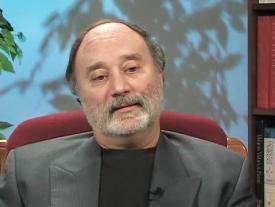God is for us!

The understanding that God is Trinity, tells us not only who God is, but also what God does. The good news is that God, who is relational love in his being, is relationally loving in his doing. Thus to know God as Trinity is to know the God who as love, and in love, saves us. To know God as Trinity is to know that God is for us! This stunning truth is revealed in the person of Jesus, the incarnate Son of God who as one of us, is God with us and for us. This vital point is made well by Martin Davis in a recent post on his blog . Martin (pictured right) provides a careful analysis of the development of thought concerning God within Western Christianity - a development that, sadly, lost much understanding concerning God's triune being and relating. Thanks Martin for your contributions to this conversation.

